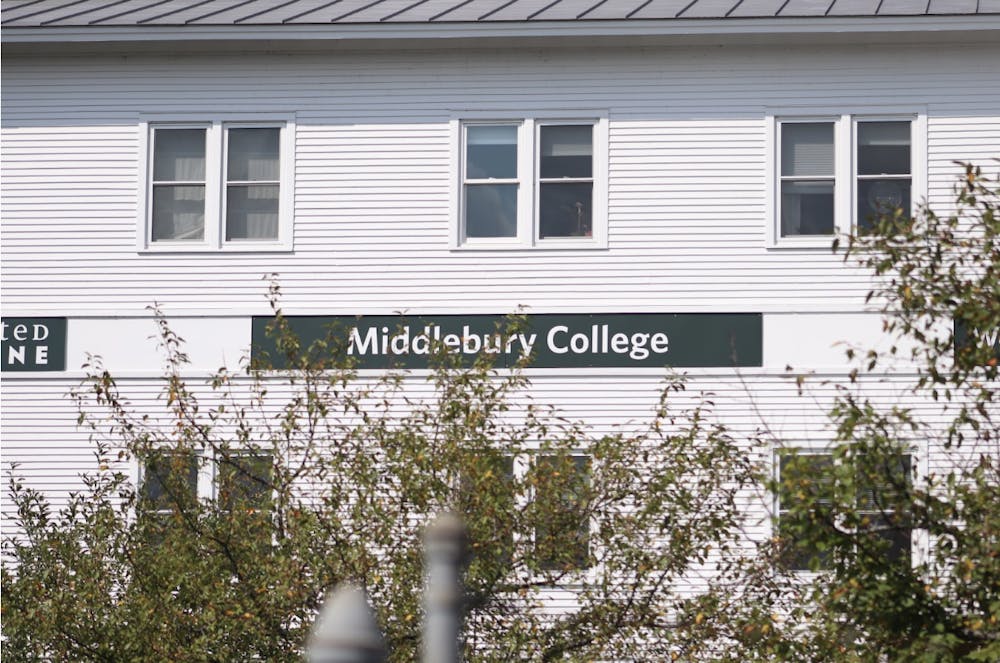Middlebury staff members who are teaching J-Term courses this year will receive a bonus of $1,000 in addition to their regular hourly wage or salary, according to Caitlin Goss, vice president for Human Resources and chief people officer. The college does not guarantee this bonus will be paid to staff teaching J-Term courses each winter, as it depends on annual budget restrictions.
“This is a practice, not a policy,” Goss wrote in an email to The Campus. “Every year we have certain budget constraints. When we’re able to do this, that comes out of the academic affairs area, and they’re able to give a bonus to appreciate staff who have done this.”
Molly Johnsen, an hourly employee at the college who serves as the academic coordinator for the English department, is currently teaching her first J-Term course, “The Art of Storytelling,” this winter. Johnsen told The Campus in the fall that the additional compensation was not a large factor in why she wanted to teach during J-Term.
“I am doing it for the love of teaching,” she said. “I love teaching, and I really miss it, so I'm excited to have this opportunity.”
However, Johnsen believes there should not be a disparity between the amount of compensation for Middlebury or visiting professors and the compensation for staff teaching J-Term.
“I don't think it's fair,” Johnsen said. “I do understand if the college wants to make sure that I continue to do my staff job, but if I'm doing the same amount of work as anybody else, especially a visiting professor who has the same credentials as I do, an MFA or an MA, the fact that they make a lot more money simply because they're not a staff person at Middlebury doesn't make sense to me.”
A statement on the Middlebury College website asks faculty submitting J-Term course proposals to “[p]lease note that the standard stipend is different for members of the Middlebury staff who teach winter term courses. We welcome the exciting contributions that staff colleagues make to the curriculum, but also recognize that staff continue to be responsible for their regular duties, and continue to be compensated for that work. For that reason, when a staff colleague’s course proposal is approved, and the relevant supervisor gives permission for it to be taught, the college pays a modest stipend in thanks to the colleague, on top of their regular pay.”
According to Goss, visiting professors are paid under the compensation structure for adjunct faculty, which differs from the staff model of compensation. For Middlebury professors, teaching a winter course is part of their official responsibilities and included in their regular salary.
Carol Wood, director of the Middlebury Costume Shop, is teaching “Couture Costume” this J-Term. She acknowledged how the college has to balance its budgetary concerns with fairly compensating staff.
“It could be more, but I do understand the college's perspective on it. The administration, if they're saying, ‘You're already pulling down a paycheck. Why should we pay you on top of that?’ I get that… If they didn't offer any compensation, I would probably not teach,” Wood said. “But if the college says, ‘Hey employee, come teach for free for us,’ I would have an issue with that.”
Wood expressed how she believes Middlebury compensates staff members like her at a higher rate due to its unique location in Vermont.
“This place pays a whole lot better than other institutions, I think, because they have to. Because we're so far away from anything, in order to get people to come and teach here or work here, they pay a little bit more,” Wood said.
Ursula Olender, director of the Center for Careers and Internships (CCI), shared her excitement for teaching the course “Live Your Best (Future) Life: From College To Career” along with CCI Associate Director Tracy Himmel Isham.
“I feel like it's a privilege to be able to stand in front of a group of students and teach them,” Olender said. Though she is enthusiastic about teaching her class, Olender also noted how the size of the bonus paid to staff teaching during J-Term could be challenging for some.
“A lot of people are struggling with changes to the compensation structure, plus people are generally struggling with inflation and food costs and all of these things,” Olender said. “I don't want to invalidate that there are people who really rely on this income [from the bonus].”
Staff member Timothy Parsons, the college’s landscape horticulturist, is teaching “Trees and the Urban Forest.” He did not take the J-Term stipend heavily into consideration when deciding to teach a winter course.
Instructors for J-Term courses are required to hold at least eight class hours per week, meet at least three times weekly, and are expected to cover roughly the same amount of content taught in a 12-week course. In an interview before the start of J-Term, Johnsen said that she is expected to work these hours in addition to her regular administrative job.
“I'm expected to do my exact position, and if I want to teach, I do it outside of those hours,” Johnsen said.
After her class had begun, Johnsen updated The Campus about how her concerns from the fall had developed in J-term. She explained how she has continued to work her regular position as an academic coordinator while choosing to take on the burden of teaching on her own time.
“I’m not doing any work for class during my coordinator hours. And I do that very purposely,” Johnsen said. “It's so much work to plan a class and prepare and grade and all of that. And I do that on my own time. And so my whole family has had to make some sacrifices. Which is my choice, but also what I feel like doesn't make sense about the payment disparity because nothing's taking away from the hours that I work as Academic Coordinator.” Johnsen said.
Johnsen added that even though she is enjoying teaching her course, the compensation she received through this bonus was not equivalent to the amount of work required to do so. She described how her choice to teach on Friday instead of Monday-Thursday meant she needed additional childcare during J-term. It also took time away from her personal and family life.
“It definitely, in retrospect, is way too much work to teach this class for $1,000. It doesn't make sense,” Johnsen said. “And I do love teaching so much, and it breaks my heart. But I don't think that it's feasible for my family life to make the sacrifice simply because I love being in a classroom. And that's really too bad.”
Wood spoke about her perspective on balancing working on costumes for the theater department with teaching a J-term course. She is responsible for running the costume shop, which includes tasks like payroll and financial reconciliations as well as finishing costumes, shopping and maintaining the costume department’s spaces. However, J-Term is not a busy time for Wood, so she uses the free time to teach a course.
“If I'm prepping for a class during what we have decided are work hours, nine to five, if something has to get done and I filled my time with prepping for a class, then I have to do it before 9 a.m. or after 5 p.m. or on the weekend,” Wood said.
The J-Term bonus is a set amount no matter how many hours staff members spend on teaching. Goss expressed that outside the bonus, hourly employees would be paid their regular wage for hours they spend teaching.
“If they do end up working more, we would expect them to enter their hours and get paid more, but their supervisor would have to have approved those additional hours,” she said.
Regarding salaried staff members, Goss said their pay outside the bonus would remain the same regardless of the hours they spend on teaching.
“So the idea would be that we wouldn't expect someone to work double the amount of time, right? We would be expecting them to adjust their workload to balance it,” she said.
This might involve other staff members in the same department taking on some of their responsibilities. The ability of a department to absorb this work is something staff members’ supervisors take into account when deciding whether or not to grant approval to teach a J-Term course.
“It would be a supervisor looking at workload and the capacity of other people in the department to take something on,” Goss said.
Teaching a winter term course is voluntary for staff members and visiting professors, while full and associate professors are usually required to teach one winter term course every two years.
“Nobody asked us to teach this. We pitched it ourselves as something we thought would be of value to the students that we're here to serve,” Olender said.
“It's much more work than I thought when I first started. It is also a lot of fun,” Parsons said.
Johnsen described being conflicted about future J-Term while emphasizing that teaching her course this semester was a decision she made herself.
“I don't know whether I would do it again,” Johnsen said. “I love it so much. It's going really well. I really like my class a lot. Middlebury students are so smart and on it, unlike any other students I have ever taught. And it's been this really special experience. So it'd be really hard to not do.”
Wood previously taught her first J-Term class in January 2021, and she was compensated with the same $1,000 bonus being paid this year. According to Parsons, the J-Term compensation model for staff has not been updated since he first taught a winter term course in January 2010.
Although the J-Term bonus may not have changed, Middlebury recently implemented a new compensation system for staff.
Johnsen expressed her disappointment with how her experience teaching this J-term has impacted her.
“I don't really feel valued by Middlebury College, and that doesn't feel good. Especially because Middlebury College is my primary employer. I don't go home and do something else after winter term,” Johnsen said. “This is my job and to feel not valued is a bummer. It doesn't feel good to work in a place like that.”
Correction 1/27/23: A previous version of this article incorrectly stated that Molly Johnsen’s role as academic coordinator is full time. This position is part time and paid hourly. The story has been corrected.
After following up with sources, The Campus determined that some information in this story was incomplete or contradictory. To clarify the sources of information about the compensation system, we have added an attribution to the lede.




